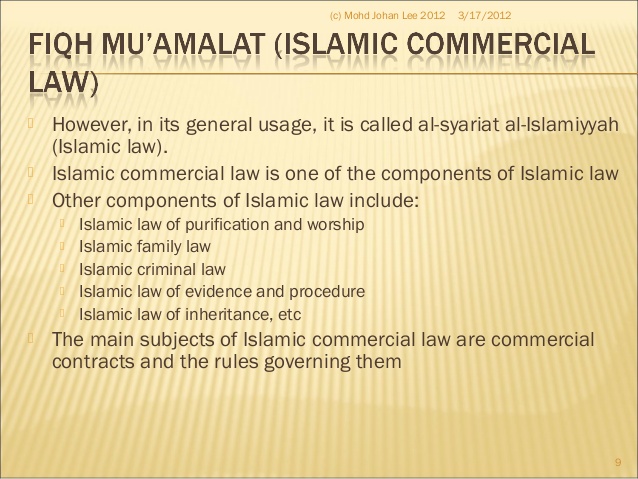
The Five Pillars Of Islam
The Five Pillars of Islam are five basic acts, considered mandatory by believers and are the foundation of Muslim life. They are summarized in the Hadith of Gabriel, and practiced by both Sunni and Shi’a:
- Shahadah: declaring there is no god except Allāh, and Muhammad is Allāh’s Messenger;
2. Salat: ritual prayer five times a day;
3. Zakat: giving 2.5 percent of one’s savings to the poor and needy;
4. Sawm: fasting and self-control during the holy month of Ramadan;
5. Hajj: pilgrimage to Mecca at least once in a lifetime if one is able.
Defined
All Muslims, regardless of sect, trace their religious heritage to the Arabian Peninsula in the seventh century A.D., when the Prophet Muhammad lived and Islam was born. Since that time, the Qur’an and traditions associated with Muhammad have defined five core rituals through which individuals can profess and confirm their adherence to the Islamic faith. Collectively, these practices are known as the Five Pillars:
Profession of faith, or shahadah. By testifying that there is only Allah, and Muhammad is His Prophet, an individual distinguishes himself or herself as a Muslim.
Praying, or salat. Muslims are supposed to pray five times a day — at dawn, noon, mid-afternoon, sunset and evening. The shahadah is repeated at each call to prayer and closes each prayer, as well.
Giving of alms, or zakat. All adult Muslims who are able to do so are required to make an annual donation to assist the poor or less fortunate. The amount is typically 2.5 percent of a person’s total wealth, not just annual income.
Fasting during the holy month of Ramadan, or sawm. Throughout the month of Ramadan, when the Qur’an was first revealed, all physically fit Muslim adults are to abstain from food, drink, smoking and sexual activity from dawn to dusk.
Pilgrimage to Mecca, or hajj. At least once in a lifetime, Muslims who are physically and financially capable of making the journey are expected to visit Islam’s holiest city, Mecca, and perform rituals associated with the hajj.
Ritual As Practice
The five ritual practices in Islam include declaration of Islamic faith (shahādah), prayer (ṣalāt), almsgiving (zakāt), fasting (ṣawm), and pilgrimage (ḥajj). In Islamic sources, a variety of terms are used to describe these practices: arkān (sing. rukn) (pillars), da‘āim (sing. di‘āma) (pillars), ‘ibādāt (sing. ‘ibāda) (acts of worship), qawā‘id (sing. qā‘ida) (principles), and farāiḍ al-Islām (sing. farīḍa) (Islamic obligations). These practices are required of all Muslim men and women, although they sometimes take different forms, depending on gender.
Origin
The Qurʾān does not present all five acts together; rather, it treats each separately — with the exception of prayer and almsgiving, which are mentioned together in many Qurʾānic verses. Leaving the shahādah aside, the obligatory status of the other four observations is clearly understood from the Qurʾānic exposition.
The five pillars are isolated as the essential foundation of Islam in the ḥadīth literature. The prophetic traditions that bring the pillars together can be divided into three categories:
- The variants of the famous ḥadīth that declares, “Islam is built upon five (principles),” and then enumerates them. Major ḥadīth collections contain different versions of the tradition transmitted by ‘Abdullāh ibn. ‘Umar, the prominent companion of Muḥammad and the son of ‘Umar, the second caliph. All these variants are in consensus regarding the last four principles, but they differ in their understanding of the first pillar, the shahādah. The canonical Shī‘ī collections also report similar traditions of enumeration with the addition of “devotion to the imām” (walāyah) to the pillars.
- According to some traditions, the Prophet introduces converts to some or all the pillars as the required practices of Islam. In some reports, the proclamation of the shahādah by the converts draws attention.
- According to the famous tradition known as the ḥadīth of Gabriel (Jibrīl), the angel visits the Prophet in human form in the presence of a group of companions and asks him about Islam, faith (īmān), goodness (iḥsān), and the end of the world. In his reply, the Prophet explains both the pillars of Islam and Islamic faith.
The existence of the traditions about the pillars in the sources as early as the Sīra of Ibn Isḥāq (d. 768) and the wide dispersion of such traditions in the ḥadīth collections suggest that these practices had gained recognition as the fundamental identifiers of Islam early in the Muslim community. Singling out ṣalāt, zakāt, ṣawm, and ḥajj as religious duties, al-Shāfi‘ī (d. 820) considered every Muslim responsible for the knowledge of these observances because they were so obviously obligatory. Consequently, the pillars became a framework for the ḥadīth collections, which had been arranged by subjects (muṣannaf), such as the early works entitled al-Muwaṭṭaʾ of Mālik b. Anas (d. 795) and al-Muṣannaf of al-Ṣanʿānī (d. 827) and the later canonical collections including the Saḥīḥs of al-Bukhārī (d. 870) and Muslim (d. 875). The pillars have also become the standard division of the books of jurisprudence (fiqh).
Pillars
Shahādah
Literally meaning “witnessing,” it is the utterance of the following statement with a sincere intention: “I bear witness that there is no god but Allah and I bear witness that Muḥammad is His messenger.” These are perhaps the words that Muslims repeat most in their lives. They are even spoken into the ears of a newborn and are the final rites given on one’s deathbed. Recitation of the shahādah is also required at the end of every two units of the ritual prayers (tashahhud), in the call to prayer (adhān), and in the second call to prayer (iqāma). The two components of the shahādah, “Lā ilāha illā Allāh” and “Muḥammad rasūl Allāh” (There is no god but God; Muḥammad is his messenger) are found separately in the Qurʾān (37:35; 47:19; 48:29). However, their utterance is not precisely identified in the Qurʾān as a ritual observation, unlike the other pillars.
There are ambiguities in the ḥadīth literature regarding the inclusion of the shahādah among the five pillars. Although it is completely absent from the pillars in a version of the tradition transmitted by IbnʿUmar (al-Ṣan‘ānī, 1970, 3:126), in other versions of the same tradition, it is replaced by other acts such as “belief” (īmān) (al-Bukhārī, īmān, 2) or “service (‘ibādah) to God and denial of other than Him” (Muslim, īmān, 20). However, the profession of “God’s unity and Muḥammad’s messenger-ship” has gained a general acceptance as the first pillar, probably because it sounded more meaningful than an act of belief or a concept that is not completely distinguishable from the other four pillars. This preference may be interpreted as an indication of the stage that Muslim orthodoxy reached after the early theological disputes over the difference between faith and action that occupied the first century of Islam. Thus, the first pillar seems to have evolved to something compatible with 49:14 and the prophetic traditions, most noticeably the ḥadīth of Gabriel, that make a distinction between belief and actions. Furthermore, the Qurʾān repeatedly designates “testifying faith” as an important act for believers. The profession of faith also stands out as the salient feature of the conversion scenes depicted in the sīrah and ḥadīth literatures. This recurrence in the Qurʾān and the prophetic traditions might urge Muslims to accept the shahādah among the pillars of Islam. As a result, the shahādah has been regarded as an utterance necessary for any man or woman who wishes to formally embrace Islam and be known as a Muslim, accepted as a member of the community and given Islamic rights and responsibilities. This is why the jurisprudential texts contain discussions of the external aspect of the shahādah and attempt to determine whether it has been properly performed.
Ṣalāt
This word refers to the ritual prayer with all its prerequisites and special body movements. The ṣalāt is prescribed in the Qurʾān (2:238; 4:103), but when and how it should be performed are only generally indicated. Elaborate details are provided in the ḥadīth literature.
According to the prophetic traditions, the ṣalāt was made into a duty to be performed five times a day (before sunrise, at noon, in the mid-afternoon, after sunset, and after dark) during the heavenly journey of the Prophet (mi‘rāj) that is reported to have occurred in the Meccan period.
The prayer must be preceded by ritual purity. Major purity, which is necessary after sexual activity, is secured by washing the whole body (ghusl). Minor purity is attained by washing the hands, the face (with the mouth, the nose, and the ears), the arms, and the feet and by wetting the hair and the neck (wuḍūʾ). If water is not found, major and minor purities are performed by wiping the arms and the face with the hands that have touched the clean earth (tayammum). Standing, bowing, prostrating, and sitting on the knees are the major movements of a ṣalāt. All of these are performed in the direction of Mecca and accompanied by Qurʾānic and non- Qurʾānic recitations in Arabic. Muslims can pray everywhere and alone, but prayer within a congregation led by an imām is considered to be more meritorious for males than prayer performed alone.
Muslim women cover their whole bodies while praying, except for their faces, hands, and feet. They are exempted from praying while they menstruate (ḥayḍ) and after childbirth until their bleeding stops (nifās). They are not required to make up (qaḍāʾ) what they miss during these periods. Ḥayḍ and nifās are regarded as major impurities; therefore, women must bathe after them in order to be able to perform ritual prayers and touch and recite the Qurʾān.
It is traditionally considered to be better for female worshippers to pray at home, unlike males. Women joining the congregational prayers are generally placed in a separate section within the mosque. Most of the legal schools (madhāhib) approve of a female prayer leader leading a gathering of women. However, according to the traditional view, a woman cannot lead men or a mixed-gender congregation. The nontraditional participation of women in the congregation has produced some controversies in recent years. For instance, Amina Wadud’s leading of a mixed congregation in Friday prayers in 2005 triggered debates throughout the Muslim world.
Zakāt
An obligatory charity incumbent upon those who hold a certain amount of wealth (niṣāb) as long as one year, zakāt consists of the annual payment of a certain percentage of wealth to one of the eight categories listed in the Qurʾān (9:60), which include the poor, the needy, the officials who collect the zakāt, those whose hearts are to be reconciled to Islam, the captives, the debtors, for the cause of God and the wayfarer. The types of property that are subject to zakāt include money, gold, silver, livestock, crops, and other sources of income, such as merchandise. The obligatory percentage varies according to the type of property possessed; for money, gold, silver and merchandise, the charity due is one fortieth of the total amount.
In the early Islamic centuries, the zakāt was collected by state authorities. But after some time, governmental collection ceased, and it was largely left to individuals to donate the required amount, although some local rulers occasionally attempted to revive the zakāt collection. Today, some Muslim countries, such as Sudan and Pakistan, apply zakāt and have been working on developing the system.
Muslim women, married or single, are obliged to give zakāt from their wealth. Some legal schools exempt women from the zakāt for the gold that they wear as jewelry, just as men are exempted for the silver that they wear.
Ṣawm (Or Ṣiyām)
The fast during the month of Ramadan. Unlike a Jewish or Christian fast, a Muslim fast involves complete abstinence from eating, drinking, smoking, and engaging in sexual relations from dawn until sunset and is practiced for an entire month. Ramadan is given prominence, for it was the month when the Qurʾān was revealed (2:185). During this month, Muslims take pains to recite the Qurʾān as often as they can and they perform special supererogatory night prayer (tarāwīḥ) that is marked by long Qurʾānic recitations. At the end of Ramadan, they celebrate one of the two Islamic festivals, the festival of fast-breaking (‘Īd al-fiṭr). On this day, the alms of fast-breaking (zakāt al-fiṭr) are given to the poor as a sign of gratitude to God.
The sick, the elderly, travelers, and pregnant or breast-feeding women do not have to fast. If they are able, they make up the missed fast days later. Otherwise, they feed a needy person for each day they have missed. Women in menstruation or postpartum bleeding do not fast. But they should make up the number of days that they miss.
The convivial atmosphere characteristic of the month of Ramadan makes it special for women all over the Islamic world. Preparation of the fast-breaking meal (ifṭār) and the night meal (saḥūr) for their families and guests gives them both responsibility and pleasure. After the ifṭār meal, many women join the tarāwīḥ prayer.
Ḥajj
The pilgrimage to Mecca. Every physically and economically capable Muslim adult is required to perform this pilgrimage at least once in his or her lifetime. The ḥajj takes place in the month of Dhū al-ḥijjah in the Islamic calendar and includes a series of rituals that are said to have been converted from the pre-Islamic Arabian practices, purified from polytheist references, and given their final shape by the Prophet at the end of his life. Some important rites of the ḥajj make symbolic reference to the striking events from the lives of Abraham, his wife Hagar, and his son Ishmael.
Male pilgrims should wrap a two-piece seamless garment (iḥrām) around themselves at certain checkpoints (mīqāt) when they are on their journey to the ḥajj. Female pilgrims are free to use their daily clothes during the ḥajj. When they arrive in Mecca, they circumambulate the Kaʿba seven times (ṭawāf) and run forth and back between the two hills, Ṣafā and Marwa, seven times (saʿy). On the ninth day of the month Dhū al-ḥijjah, the pilgrims must be at the plain of ʿArafāt, just outside Mecca, from noon to sunset. During the following days, which are the days of the festival of sacrifice (ʿĪd al-aḍḥā), they perform the ritual of stoning at Mina, offer an animal sacrifice and circumambulate the Kaʿba again to complete their ḥajj.
About two million people visit Mecca for pilgrimage each year. The proportion of female pilgrims has grown in the last decades, and now nearly one-half of the pilgrims are women. Legal schools have discussed the religious validity of a woman traveling for the ḥajj alone without her husband or any close male relative (maḥram). Most scholars allow such a woman to travel for the obligatory ḥajj with a group of trustworthy pilgrims who would protect her. Saudi Arabia does not issue ḥajj visas for women who are unaccompanied by a maḥram and would like to travel with a group unless they are older than the age of forty-five. Women who are menstruating during the ḥajj can perform all of the observations except the ṭawāf. They should postpone the ṭawāf, one of the major obligations of the ḥajj, until the end of their menstruation. If their travel schedule does not allow them to wait that long, they take a bath and perform the ṭawāf while they are still in menstruation. In this case, some scholars suggest they should offer an animal sacrifice, but this is not required in Ibn Taymiyyah’s (d. 1328) opinion.
Knowledge Of The Pillars
The Prophet Muḥammad is reported to have said, “The search for knowledge (al-‘ilm) is incumbent upon all Muslims” (Ibn Mājah, Muqaddima;, 20). Muslim scholars have generally understood the ‘ilm here to mean the knowledge of religious duties applicable to all (farḍ ‘ayn), and some of them even identified it with the knowledge of the five pillars. Probably motivated by the tradition, the concise manuals that focus on only the pillars (fiqh al-‘ibādāt) have been produced along with the comprehensive jurisprudence books that elaborate acts of worship (‘ibādāt), as well as human interrelations (mu‘āmalāt). Recently, we have been observing the publication of such manuals in different languages written exclusively for women.
The Five Pillars of Islam
401 – 001
https://discerningoslam.org
Last Update: 02/2021





[…] that marks the end of hajj and commemorates Abraham’s willingness to sacrifice his son for God.Hajj is one of the Five Pillars (core practices) of Islam, which include giving of alms, or zakat, and praying, or salah. All Muslim adults are expected to […]